Pathophysiology of Choline and Choline Transporters
A special issue of International Journal of Molecular Sciences (ISSN 1422-0067). This special issue belongs to the section "Molecular Pathology, Diagnostics, and Therapeutics".
Deadline for manuscript submissions: closed (31 March 2021) | Viewed by 10132
Special Issue Editor
Interests: molecular pharmacology; choline transporters; oncology; neuroscience
Special Issues, Collections and Topics in MDPI journals
Special Issue Information
Dear Colleagues,
Choline is an organic cation that is essential for the normal function of all cells. It is essential for the synthesis of membrane phospholipids, the methyl donor betaine, and the neurotransmitter acetylcholine. Choline is consumed in the diet and insufficient intake may cause choline deficiency, especially under conditions that require large amounts of choline, such as pregnancy, breast-feeding and parenteral nutrition. Choline deficiency affects the expression of genes involved in cell proliferation, differentiation, and apoptosis, and it is associated with liver dysfunction and cancer. Therefore, the study of choline transport and the characteristics of choline transporters are of central importance to understand the mechanisms that underlie membrane integrity and cell signaling. The choline transport system has been categorized into three transporter families. They include (I) polyspecific organic cation transporters (OCTs) with low affinity for choline, (II) high-affinity choline transporter 1 (CHT1), and (III) choline transporter-like proteins (CTLs). They are expressed in different organisms and cell types, and this implies its importance for choline transport for a broader purpose, such as acetylcholine and phospholipid synthesis.
This Special Issue focuses on the latest research on the pathophysiology of choline deficiency and its relationship to various diseases, and on the role of choline transporters in the pathophysiology and development of drugs as therapeutic targets. Authors are invited to submit original research and review papers addressing the topic of this Special Issue.
Prof. Dr. Masato Inazu
Guest Editor
Manuscript Submission Information
Manuscripts should be submitted online at www.mdpi.com by registering and logging in to this website. Once you are registered, click here to go to the submission form. Manuscripts can be submitted until the deadline. All submissions that pass pre-check are peer-reviewed. Accepted papers will be published continuously in the journal (as soon as accepted) and will be listed together on the special issue website. Research articles, review articles as well as short communications are invited. For planned papers, a title and short abstract (about 100 words) can be sent to the Editorial Office for announcement on this website.
Submitted manuscripts should not have been published previously, nor be under consideration for publication elsewhere (except conference proceedings papers). All manuscripts are thoroughly refereed through a single-blind peer-review process. A guide for authors and other relevant information for submission of manuscripts is available on the Instructions for Authors page. International Journal of Molecular Sciences is an international peer-reviewed open access semimonthly journal published by MDPI.
Please visit the Instructions for Authors page before submitting a manuscript. There is an Article Processing Charge (APC) for publication in this open access journal. For details about the APC please see here. Submitted papers should be well formatted and use good English. Authors may use MDPI's English editing service prior to publication or during author revisions.
Keywords
- Choline deficiency
- Choline transporters
- Cancer
- Choline-PET
- Choline metabolism
- Dementia
- Acetylcholine
- Betaine
- Phospholipids
- Drug target
- Epigenetics
Benefits of Publishing in a Special Issue
- Ease of navigation: Grouping papers by topic helps scholars navigate broad scope journals more efficiently.
- Greater discoverability: Special Issues support the reach and impact of scientific research. Articles in Special Issues are more discoverable and cited more frequently.
- Expansion of research network: Special Issues facilitate connections among authors, fostering scientific collaborations.
- External promotion: Articles in Special Issues are often promoted through the journal's social media, increasing their visibility.
- e-Book format: Special Issues with more than 10 articles can be published as dedicated e-books, ensuring wide and rapid dissemination.
Further information on MDPI's Special Issue polices can be found here.






